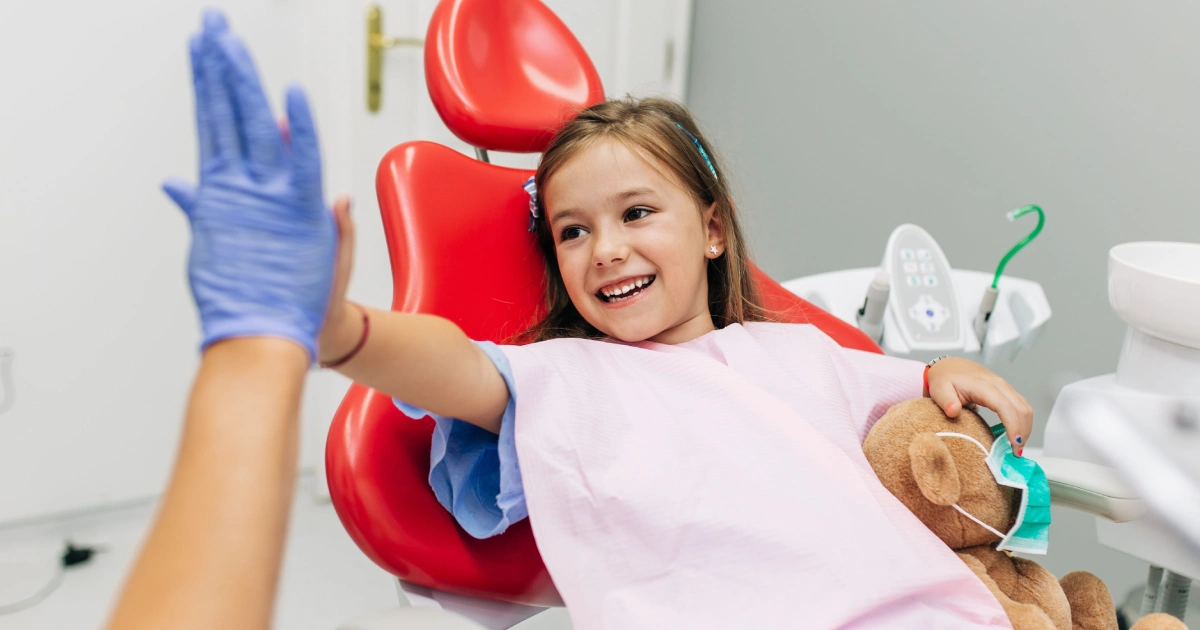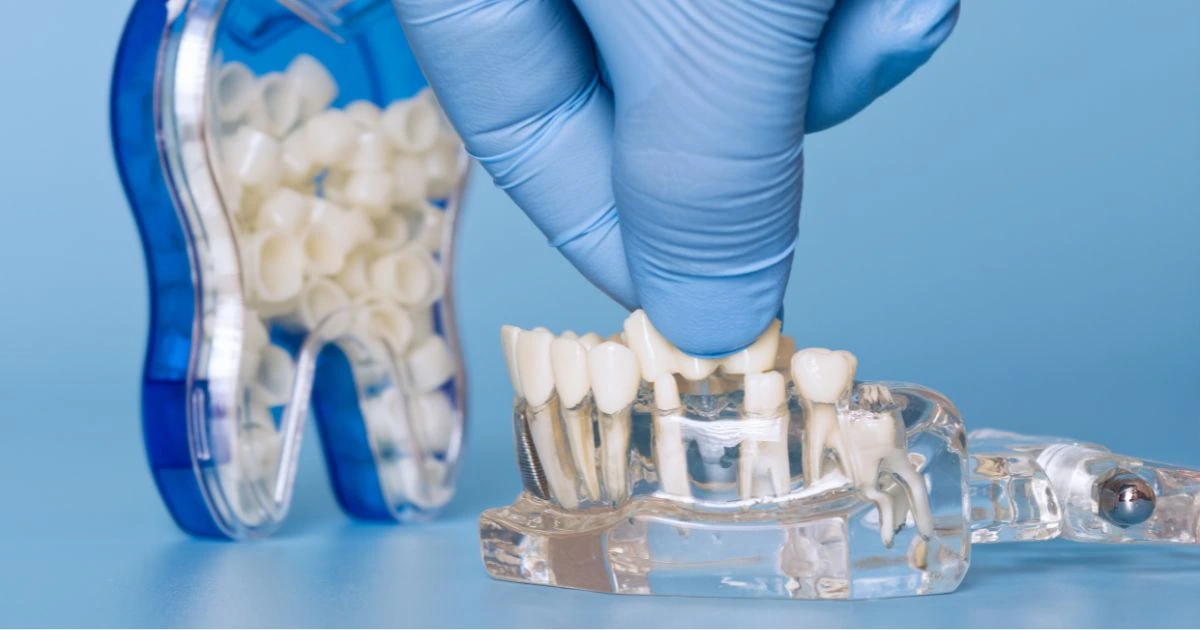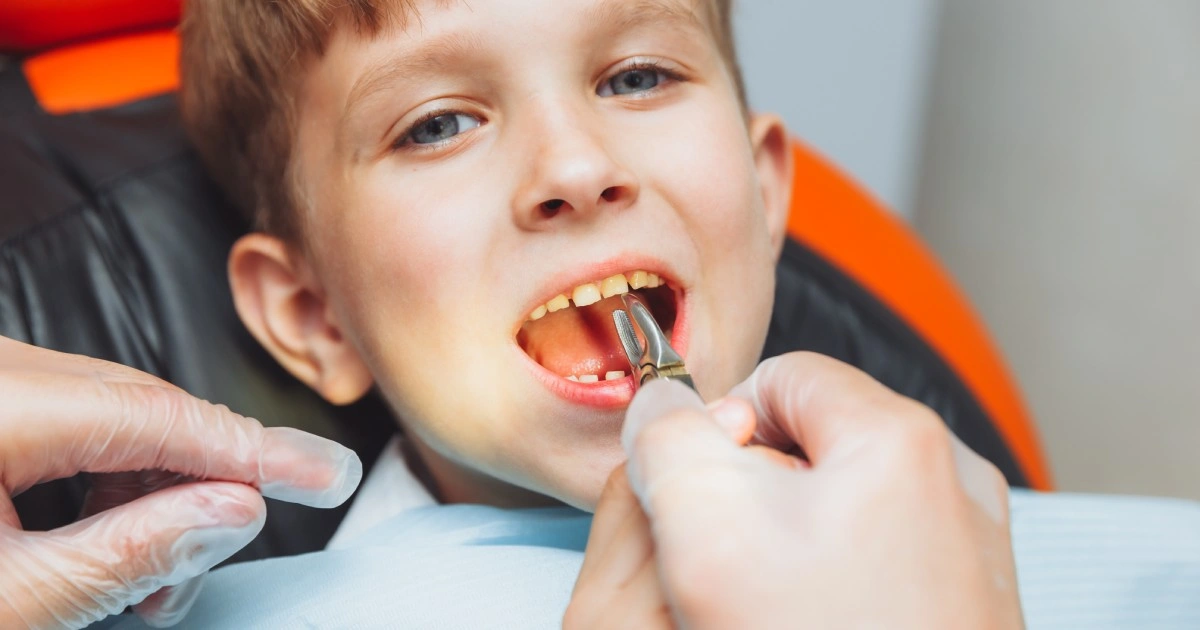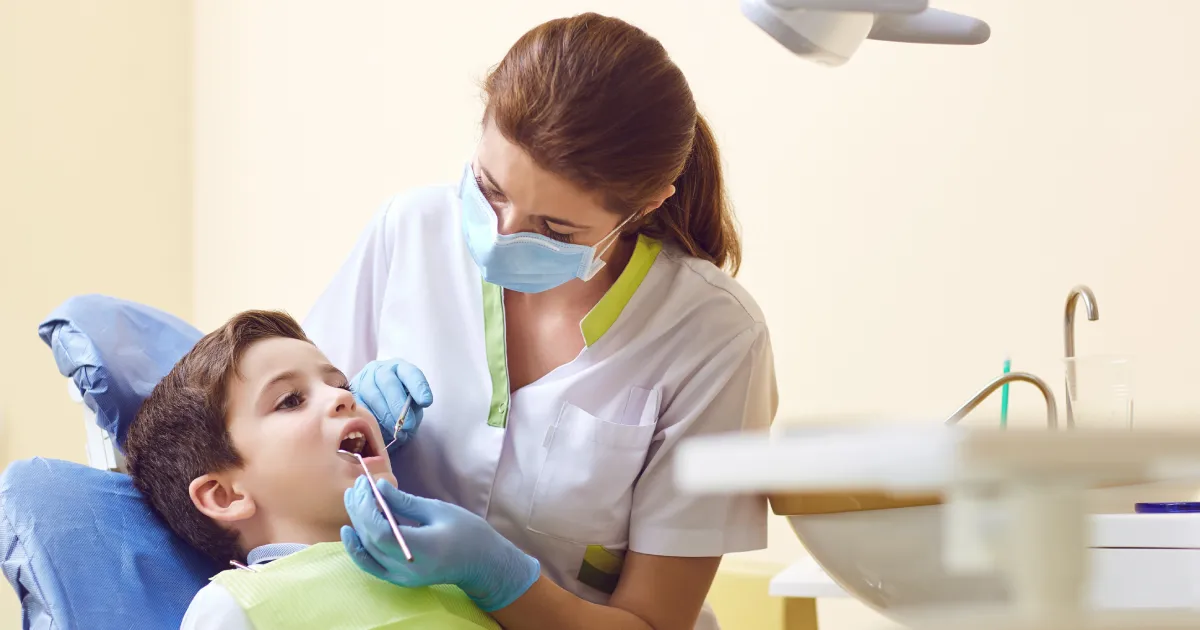Table of Contents
Chewing on one side of the mouth. Mouth breathing during sleep. A small chin that seems out of proportion. These subtle signs often go unnoticed until a dentist points them out, but they can indicate that a child’s jaw isn’t developing the way it should.
Misaligned jaws affect more than how teeth look. They impact how kids eat, sleep, breathe, and even speak. Left unaddressed, these issues can lead to chronic headaches, trouble concentrating, and orthodontic problems that become harder (and more expensive) to fix as kids get older.
The good news? Jaw problems are much easier to correct during childhood, when bones are still growing and malleable. Dental appliances designed for jaw correction can guide development in real time, preventing complications before they take root.
At Solomon Kids Dentistry in Carnes & Knightsville, SC, early intervention is part of comprehensive kids dental care. Catching jaw misalignment early means simpler treatment, better results, and a healthier foundation for lifelong oral health.
Here’s what parents need to know about dental appliances, how they work, and why timing matters so much.
What Misaligned Jaws Mean for Growing Kids
When a child’s upper and lower jaws don’t line up properly, it creates a cascade of issues. The jaw might be too narrow, causing crowding as permanent teeth come in. It might be too far forward or back, affecting bite alignment and facial symmetry. Or it might not be growing evenly, leading to one side developing differently from the other.
These aren’t just cosmetic concerns. Misaligned jaws affect jaw development in children in ways that ripple through their daily lives. Difficulty chewing makes eating uncomfortable. Mouth breathing (often caused by a narrow upper jaw) disrupts sleep and oxygen intake. Speech problems can develop when the tongue doesn’t have enough room to move properly.
Kids with misaligned jaws are also at higher risk for tooth decay and gum disease because crowded or poorly positioned teeth are harder to clean effectively. And as they grow, the misalignment can worsen, creating chronic jaw pain (TMJ issues) that follows them into adulthood.
The window for intervention is surprisingly narrow. While a child’s jaw doesn’t fully mature until their teenage years, the critical growth period happens much earlier. By age 7, enough permanent teeth have come in to spot potential problems, and the jaw is still flexible enough to respond to gentle correction.
This is where dental appliances for children become incredibly valuable. Instead of waiting for all permanent teeth to arrive (which is the traditional approach), early orthodontic treatment uses the body’s natural growth patterns to guide jaws into proper alignment.
Why Early Intervention Makes a Difference
When dental appliances are introduced early as part of comprehensive kids dental care, the benefits reach far beyond straight teeth. Here’s why parents are choosing to start earlier:
- Better bite function: Correcting alignment improves chewing, speech, and comfort
- Easier future orthodontics: Early guidance reduces the severity of future braces or aligner treatment
- Improved breathing: Appliances can help widen the airway and support healthier sleep habits
- Fewer oral health issues: Correct alignment can prevent tooth wear, decay, and jaw tension
- Boosted confidence: A more aligned jaw means a more natural-looking smile and better self-esteem
When misalignments are left untreated, kids may face speech delays, poor sleep quality, and increased risk for cavities or jaw pain. Dental appliances for children offer a proactive, gentle way to support healthy growth.
Who Can Benefit From Jaw Correction Appliances?
Not every child needs jaw correction appliances, but many benefit from early assessments, especially if you’ve noticed:
- Snoring or mouth breathing during sleep
- Early or late loss of baby teeth
- Crowding or spacing between teeth
- Jaw popping, clicking, or shifting
- Difficulty chewing or speaking clearly
- Frequent teeth grinding
The American Association of Orthodontists recommends that children have an orthodontic evaluation by age 7. This allows the dentist to track jaw development in children and catch early signs of misalignment.
Kids dental care specialists can determine the appropriate time and approach for treatment, ensuring that earlier corrections are more effective due to the flexibility of the jaw. Contact us at Solomon Kids Dentistry to learn more about kids dental care in Carnes & Knightsville, SC, and how we support growing smiles.
What to Expect From the Dental Appliances Process
The idea of starting dental appliances might feel overwhelming, but the actual process is simple and kid-friendly when guided by an experienced pediatric dental team. With gentle guidance and clear instructions, children quickly adapt to the appliances and understand how they help their smile grow healthier.
Initial Consultation
It starts with a gentle exam and X-rays to assess your child’s teeth and jaw growth. The dentist will explain whether any signs point to misalignment or space concerns.
If jaw correction is needed, you’ll learn about options like expanders, space maintainers, or other devices. The focus is always on what’s least invasive and most helpful for your child’s specific needs.
Getting the Appliance
Most appliances are custom-made and fitted in-office. The process is painless and usually takes just a few minutes. Instructions on care and cleaning will be given so you and your child feel confident at home.
Adjustments and Follow-Ups
Follow-up visits allow the dentist to make adjustments as your child grows. These appointments are usually quick and scheduled every few weeks or months, depending on the appliance.
What About Downtime?
There’s little to no downtime. Most kids go right back to school, sports, or playtime after their visit. Mild soreness may occur at first, but it goes away quickly as they adjust.
Results Timeline
Some changes are noticeable within a few months, while others develop over time. The biggest benefit? Supporting natural growth now helps avoid complications later. Many kids finish early orthodontic treatment without needing full braces, or spend less time in them.
Common Questions About Kids Dental Appliances
Are jaw correction appliances painful?
Most kids feel only mild pressure or discomfort at first. It usually goes away within a few days as the mouth adjusts.
Can dental appliances affect speech?
Some appliances might cause slight changes in speech at first, but most children adapt quickly. Any temporary lisp usually fades in a week or two.
Do all kids need early orthodontic treatment?
No. But early screenings help identify potential issues before they escalate into bigger problems. Preventive care often means shorter and simpler treatment later.
Give Your Child’s Smile a Strong Start
Misaligned jaws don’t always show up as obvious problems. Sometimes it’s just a small shift in the bite, or a child breathing through their mouth at night. But these early signs matter, and treating them gently before they worsen is the key to long-term oral health.
That’s why early kids dental care in Carnes and Knightsville, SC makes such a difference. At Solomon Kids Dentistry, our focus is on building trust and comfort, and providing real solutions, all without rushing or overcorrecting. If your child is between 5 and 10 years old and shows signs of bite or jaw concerns, consider a simple screening.
Contact us for jaw correction appliances today to explore how early care can set the foundation for a healthier, more confident smile.





